Brexit news: Britain raises terror threat to severe, and UK misses EU deadline
Follow events as they happened
Your support helps us to tell the story
From reproductive rights to climate change to Big Tech, The Independent is on the ground when the story is developing. Whether it's investigating the financials of Elon Musk's pro-Trump PAC or producing our latest documentary, 'The A Word', which shines a light on the American women fighting for reproductive rights, we know how important it is to parse out the facts from the messaging.
At such a critical moment in US history, we need reporters on the ground. Your donation allows us to keep sending journalists to speak to both sides of the story.
The Independent is trusted by Americans across the entire political spectrum. And unlike many other quality news outlets, we choose not to lock Americans out of our reporting and analysis with paywalls. We believe quality journalism should be available to everyone, paid for by those who can afford it.
Your support makes all the difference.The UK’s terrorism threat level has been raised to severe, meaning that an attack is judged to be highly likely.
The Joint Terrorism Analysis Centre (Jtac) made the assessment following a spate of attacks in France and the shooting rampage by an Isis supporter in Vienna.
Priti Patel, the UK home secretary, said it was a “precautionary measure” that was “not based on a specific threat”.
Meanwhile, Boris Johnson is facing further legal action from the EU after he missed a deadline to explain why he is planning to break international law over Northern Ireland.
Speaking on Tuesday, a European Commission spokesperson said: “We sent a letter of formal notice on 1 October to the UK for breaching its obligations under the withdrawal agreement. As you know it had until the end of the month to submit its observations to that letter.”
They added: "To date I can confirm that the EU has received no reply from the UK, therefore we are considering next steps, including issuing a reasoned opinion [of the European Court of Justice]."
Sadiq Khan moves City Hall
London mayor Sadiq Khan has confirmed he is moving the Greater London Authority out of its Thamesside City Hall home to a new HQ in the capital’s Royal Docks as part of an effort to plug a £500m financial black hole caused by the coronavirus pandemic.
Khan this morning told staff that the move to the Crystal Building, which is already owned by the GLA, will save £61m over the next five years in rent and other bills.
“Given our huge budget shortfall, and without the support we should be getting from the government, I simply cannot justify remaining at our current expensive office when I could be investing that money into public transport, the Met Police and the London Fire Brigade,” said the mayor.
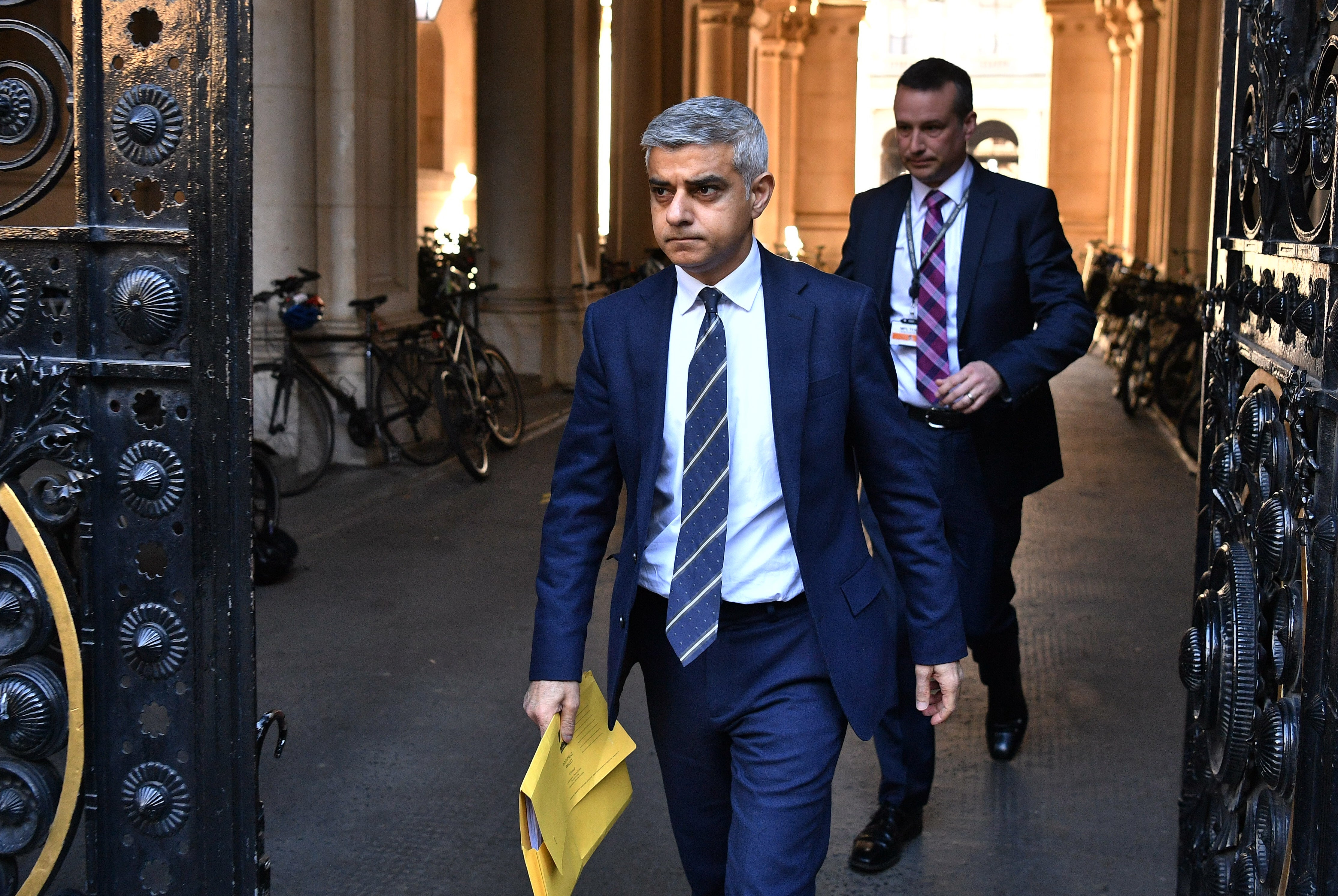
Government will respond to petition demanding one-year Brexit extension
Brexiteers may not like, but the government will have to respond to a petition demanding a one-year extension to the transition period and another referendum – after it gained more than 10,000 signatures.
Petitioner Bob Downie said it was time for Downing Street to “take a step back from the Brexit negotiations and take a breather”.
UK ‘fails to reply to EU legal letter’
The UK not yet responded European Commission’s formal letter threatening legal action over the Internal Market Bill, which breaches key parts of the existing withdrawal agreement, according to the latest report.
The deadline came and went on Monday without reply, EU sources have told RTE’s Tony Connelly.
France’s Europe minister Clément Beaune told Andrew Marr on Sunday that EU could still “go further” – mentioning the “possibility” of a lawsuit. Could the row flare up again and disrupt the trade talks in Brussels?
Police scramble to rescue files of suspected criminals amid Brexit fears
Police are scrambling to save the vital details of suspected criminals and missing people in case a vital database is “switched off” by a no-deal Brexit.
Thousands of names are being hurriedly “double keyed” into the Interpol system, amid fears the UK will lose all access to the Schengen Information System (SIS II) if there’s no agreement with the EU by the end of 2020.
Richard Martin, the deputy assistant commissioner at the Met in charge of Brexit preparations, warned of the “massive impact” on policing of a no-deal.
And, on SIS II, he revealed: “We are either not in it not in it, for want of a better word –there is no sort of halfway house.”
“We’re putting the most important alerts that we have on SIS also onto the Interpol system, so that – if it is literally switched off at 2300 hours on the 31st – then policing will still have access to those alerts that we consider to be the most important,” he has just told a parliamentary inquiry.

Police scramble to rescue files of suspected criminals and missing people amid no-deal Brexit fears
Thousands of names ‘double keyed’ into Interpol system – in case screens ‘switched off’ in just eight weeks’ time
Patel set to ban protests of ‘more than two’ during lockdown
Demonstrations of more than two people could be banned during the month-long lockdown in England – with ministers set to remove an exemption that has allowed protests to take place in recent months.
Priti Patel is reported to have briefed chief constables over plans for tougher enforcement measures.
Human rights barrister Adam Wagner described the development as “worrying” on Twitter, adding: “Obviously there is a balance to be struck between preventing the virus and basic right – but with the government using unprecedented executive powers to impose restrictions, protest is hugely important.”

Priti Patel set to ban demonstrations during England lockdown
‘People must follow the rules on meeting with others, which apply to all gatherings and therefore protests too,’ says Home Office
No 10 hopes for ‘satisfactory outcome’ on legal row
An update now on the passing of EU Commission’s deadline for Boris Johnson to explain why he is planning to break international law with his Internal Market Bill.
Asked why UK hadn’t responded to the EU’s formal letter, a government spokesperson said: “We are committed to working through the Joint Committee process to find a satisfactory outcome for both sides.
“That is our overriding priority. We will respond to the next stages of this process in due course, as required.”
Meanwhile, a European Commission spokesman said on Tuesday that Britain had failed to reply and that the Commission would therefore now consider the next step in the legal dispute which is a reasoned opinion.
Our correspondent Jon Stone has more on the brewing row:
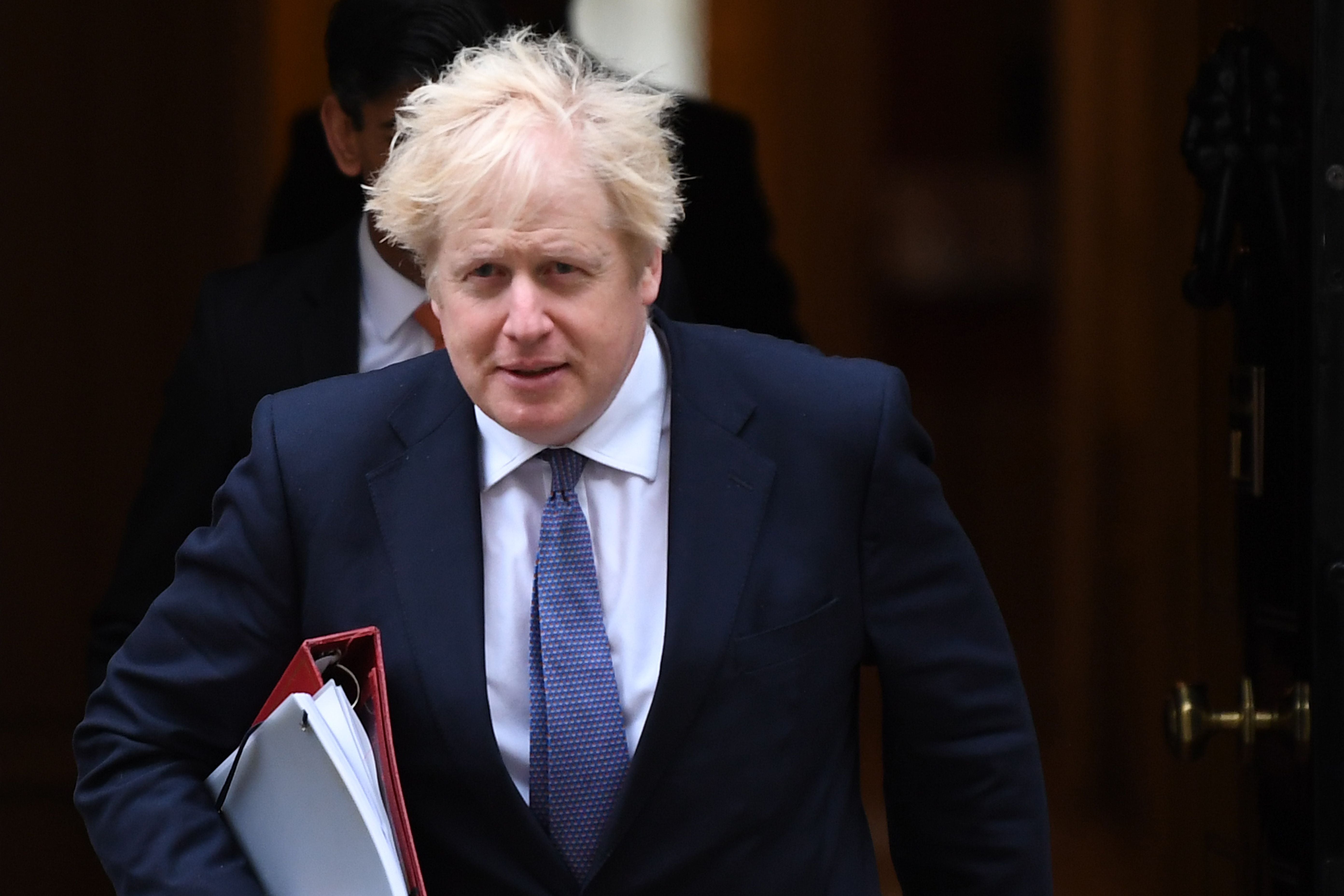
Boris Johnson misses EU deadline to explain breach of international law
Prime minister wants to overwrite parts of treaty he agreed at beginning of the year
Brexit talks ‘stuck’ on fishing quotas – and other blockages
Brexit trade talks have so far failed to agree on any of three persistent disagreements – fisheries, level playing field issues and a mechanism for settling disputes – sources have said.
EU chief negotiator Michel Barnier and his UK counterpart David Frost are still locked in discussions in Brussels, but a breakthrough does not appear to be imminent. Sources from both sides told Reuters there was no agreements on the big issues.
An EU diplomat said disagreement persisted over the divvying up of fish stocks, including Britain’s demand for annual quota negotiations. “That’s where we are stuck. They haven’t moved beyond these items on fisheries.”
Barnier may brief the 27 national envoys on the progress (or lack of it) on Wednesday afternoon.
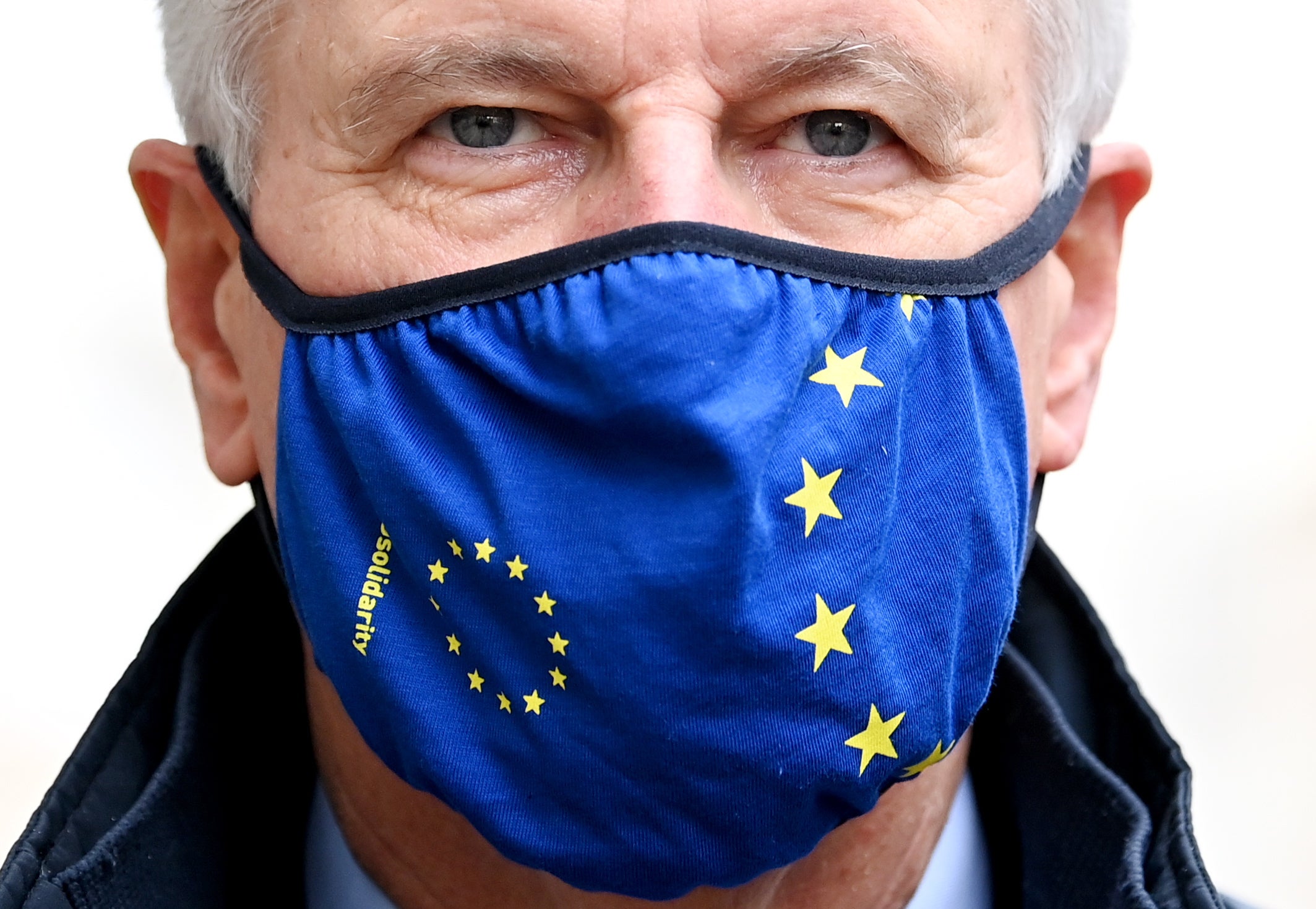
Will Scotland get furlough support? ‘Of course’ says No 10
No 10 has said the UK government would “of course” provide economic support should Scotland require its own lockdown after 2 December.
The PM’s official spokesman said “furlough has always been a UK-wide scheme, and, as the PM has said, the government will always be there to provide support to all parts of the United Kingdom”
Pressed on whether this ruled out a Wales or Scotland-only furlough scheme, the spokesman said: “As the PM said, if other parts of the UK decide to go into measures which require direct economic support, of course we will make that available to them as we have done throughout the pandemic.”
Communities minister Robert Jenrick appeared hesititant when asked if support would be there beyond the end of England’s lockdown on 2 December.
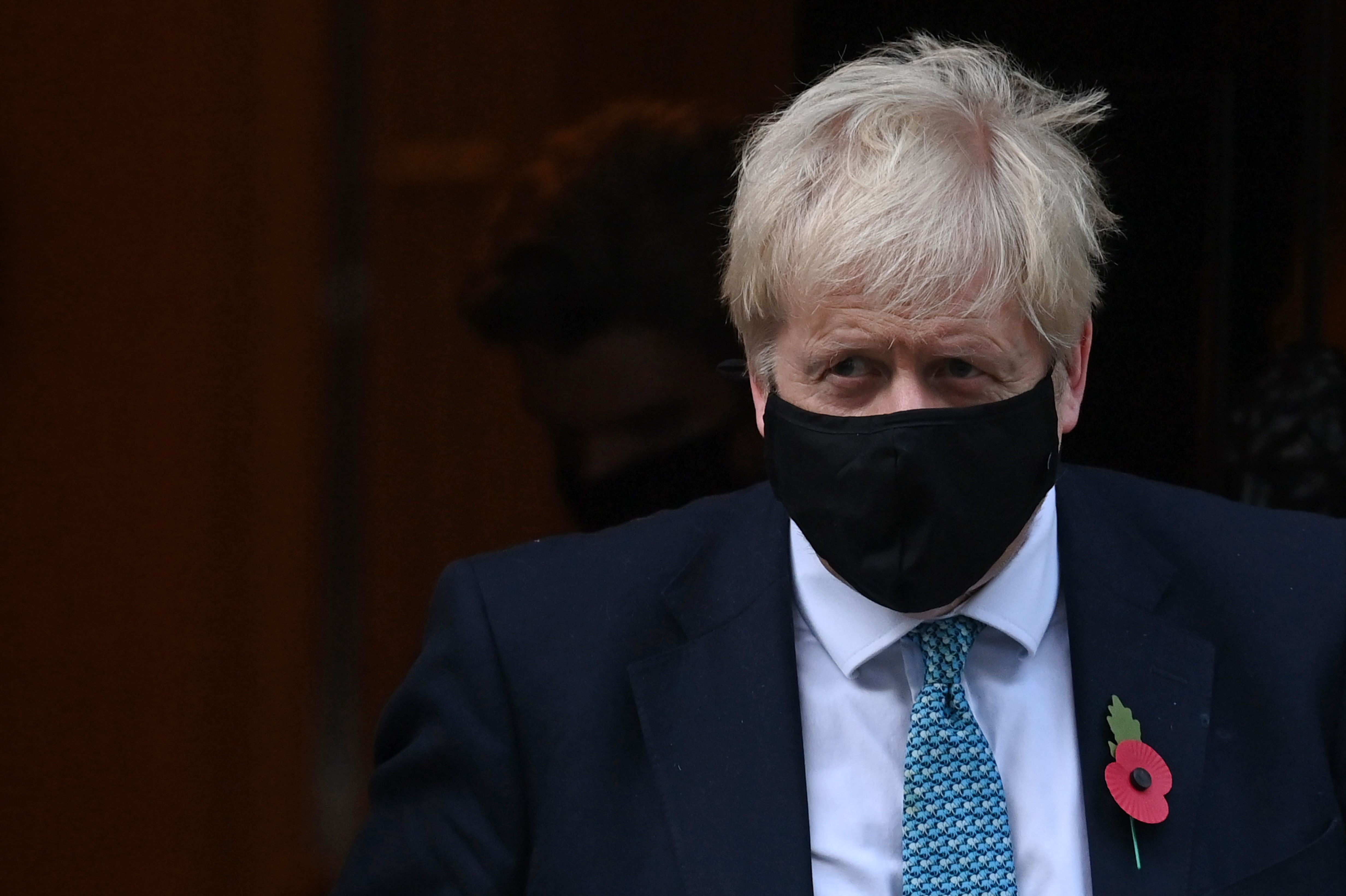
Some progress on level playing field issues, says Irish minister
Ireland’s foreign minister Simon Coveney said on Tuesday said that some progress has been made in on the so-called level playing field issues in Brexit talks – but agreement on one of the most persistent areas of disagreement was far from concluded.
“If there is not a basic set of rules around fair competition that both sides commit to complying with and if there is not a governance structure that can deal with disputes, then in my view there will not be a trade deal,” Coveney told an online conference.
“My understanding is there is some progress being made in this area but it’s far from concluded yet,” he said, adding that he was confident a deal could be reached but that time may run out to strike one.
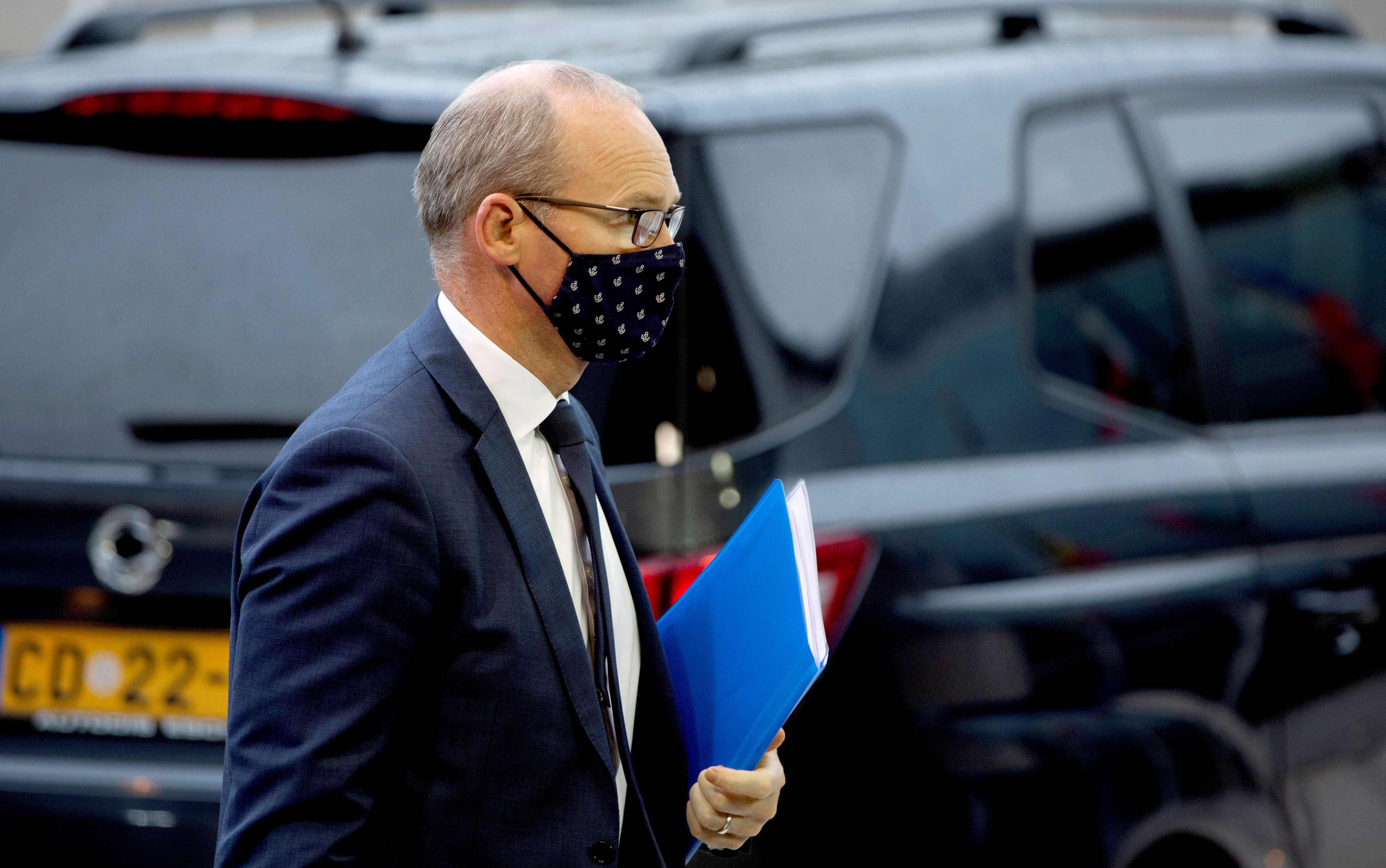
UK hasn’t prepared for ‘radicalism’ of second Trump term, says expert
The UK in a Changing Europe think tank, based at King’s College London, is holding an interesting discussion on the potential impact of the US election result.
The FT’s Gideon Rachman said a Trump victory would be bad news for both the UK and the EU. “The British haven’t factored in the potential radicalism of a second Trump term - Trump would play much rougher … Trump is actively hostile to the EU. US support for central and eastern members is seen in Berlin as an attempt to build up a US bloc within the EU.”
The current US ambassador to the UK, Robert “Woody” Johnson, claimed earlier that a UK-US deal would happen regardless of the presidential election result. “I’m confident our countries can get this done no matter what happens today.”

Join our commenting forum
Join thought-provoking conversations, follow other Independent readers and see their replies
Comments